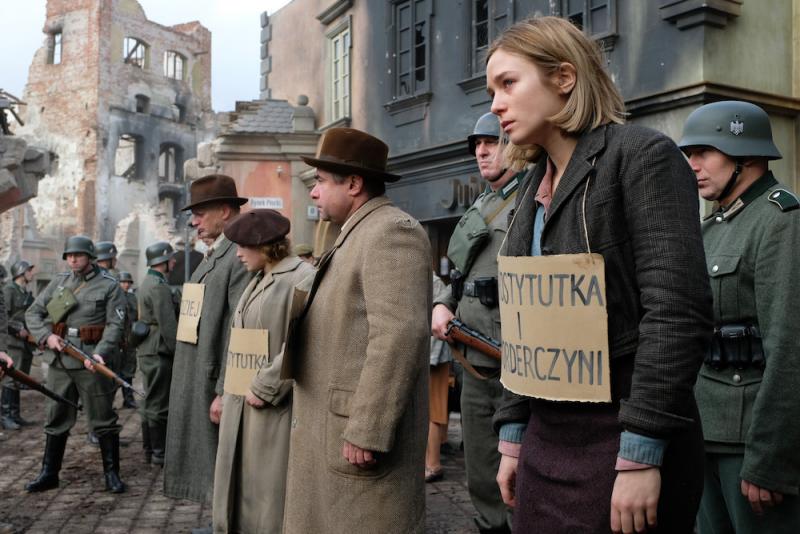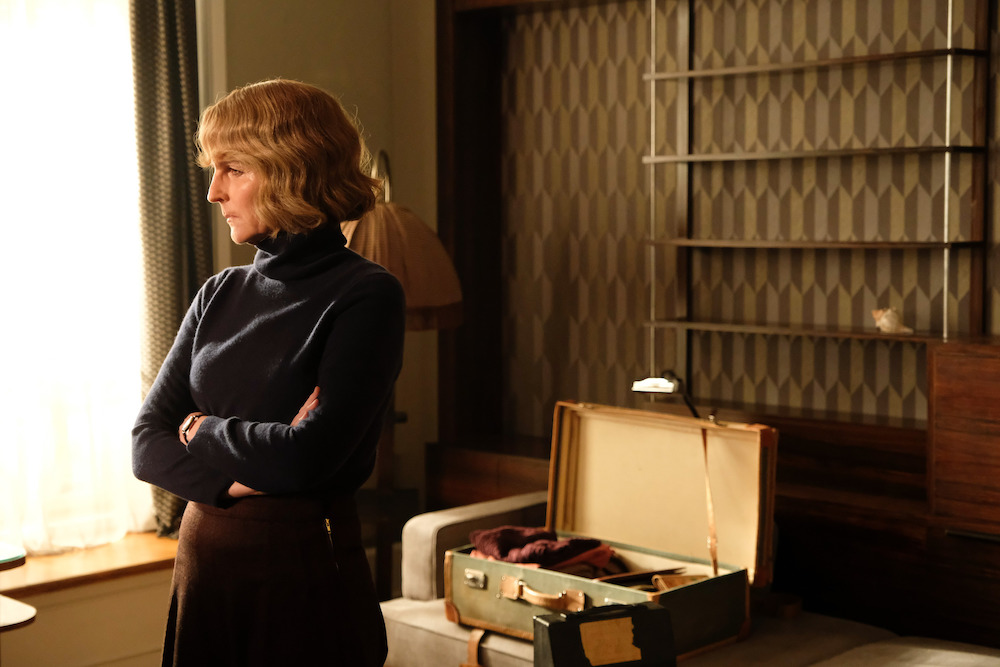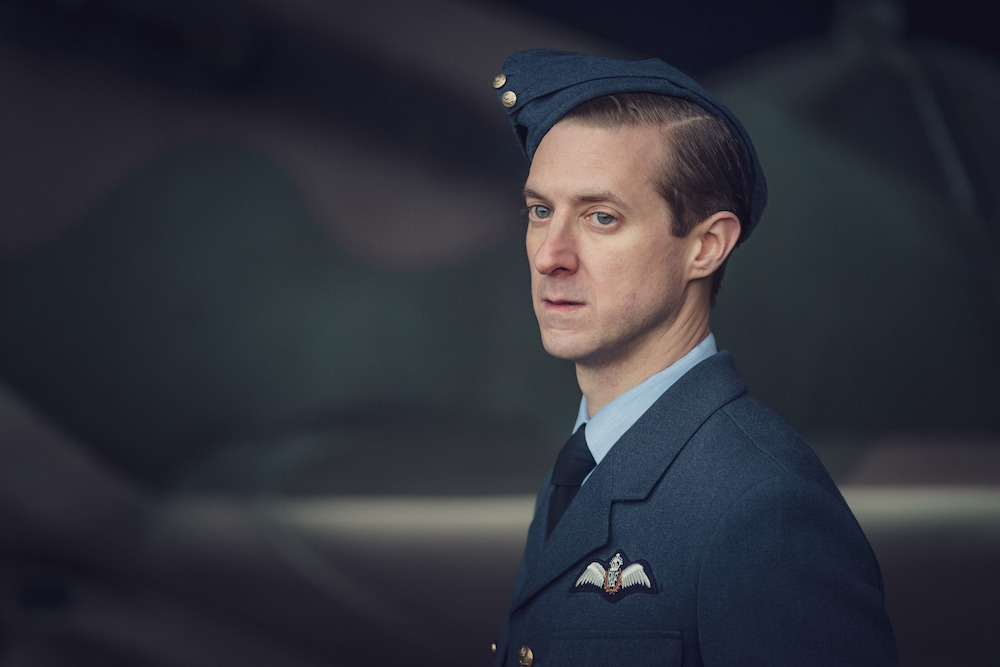World on Fire, BBC One, series finale review - may this fine war drama fight on | reviews, news & interviews
World on Fire, BBC One, series finale review - may this fine war drama fight on
World on Fire, BBC One, series finale review - may this fine war drama fight on
Peter Bowker's ambitious series ended on a cliffhanger, with viewers waiting to learn its fate

A bit like all those people on the home front in 1940 (but only a little bit), we sit and nervously wait for news. Is World on Fire (BBC One) still listed among the living? Or even now is someone typing up the letter and sticking it in a brown envelope?
The portal in was the human heart, a messy and complicated organ housing fear and hope, joy and despair. It didn’t seem to make any difference if the heart belonged to a Polish waitress or a French-African saxophonist or the owner of a Berlin laundry business. War exploded into their lives and used them for shrapnel.
From the start Peter Bowker’s scripts resolved to peel away calcified layers of myth. This was no sepia-tinted postcard from the past. There were no bullet points reductive enough for Brexit’s Corporal Jones, the very little Englander Mark Francois. Thus there were cold-blooded racists on our side and morally decent soldiers on theirs, and PTSD everywhere.
 Blingier war stories on bigger screens have traded in jumbo ordnance. World on Fire's tinpot Dunkirk was no match for Christopher Nolan’s, and the Nazi horrors in Poland had nothing on Spielberg or Polanski. It made up for the budgetary shortfall with a different style of ambition, knitting together the map of Europe in a cat’s cradle of interconnections. Nowadays we’re trained to frown on coincidence, but here it was used to impose narrative sense on senseless history. The reportage of Nancy Campbell (Helen Hunt, pictured above) did the additional work of a Greek chorus, backfilling the wider canvas.
Blingier war stories on bigger screens have traded in jumbo ordnance. World on Fire's tinpot Dunkirk was no match for Christopher Nolan’s, and the Nazi horrors in Poland had nothing on Spielberg or Polanski. It made up for the budgetary shortfall with a different style of ambition, knitting together the map of Europe in a cat’s cradle of interconnections. Nowadays we’re trained to frown on coincidence, but here it was used to impose narrative sense on senseless history. The reportage of Nancy Campbell (Helen Hunt, pictured above) did the additional work of a Greek chorus, backfilling the wider canvas.
The tone throughout has been bracingly unsentimental. Just when you thought the script was going to preserve all its surviving main characters, Frau Rossler (Victoria Mayer) killed her epileptic daughter and took her own life – a ghastly premonition of Magda Goebbels’ serial murder of her brood at the end of the war.
As for the English, they were not just at war with each other, squabbling among themselves about class and identity. Some went to war with themselves too: Robina Chase (Lesley Manville) battled to suppress her intolerance and confront long-suppressed rage; Douglas Bennett (Sean Bean) fought to overcome his visceral fear of war. These roles were happily in the hands of actors equal to the task. Manville in particular worked through an enriching parade of pinched smiles and snobbish moues.
 And then there was Harry (Jonah Hauer-King), perfidious Albion in khaki who was bent on achieving a heroic death in order to avoid living with his conscience. The finale denied him that outcome, though after his reunion with Kasia (Zofia Wichlacz, the pick of the younger cast) in the Polish countryside, he seemed to be on the cusp of getting his wish.
And then there was Harry (Jonah Hauer-King), perfidious Albion in khaki who was bent on achieving a heroic death in order to avoid living with his conscience. The finale denied him that outcome, though after his reunion with Kasia (Zofia Wichlacz, the pick of the younger cast) in the Polish countryside, he seemed to be on the cusp of getting his wish.
In other intensely moving news, Kasia cheated the firing squad and her brothers were reunited in an English asylum. And Harry at least has only one woman to worry about now. Lois Bennett (Julia Brown) was unconvinced by the polite attentions of fighter pilot Vernon Hunter (Arthur Darvill, pictured above), but the prospect of his death in the skies over England clarified her thoughts very nicely indeed.
Come on, BBC. Tell us what happens to this lot next.
Add comment
The future of Arts Journalism
You can stop theartsdesk.com closing!
We urgently need financing to survive. Our fundraising drive has thus far raised £49,000 but we need to reach £100,000 or we will be forced to close. Please contribute here: https://gofund.me/c3f6033d
And if you can forward this information to anyone who might assist, we’d be grateful.

Subscribe to theartsdesk.com
Thank you for continuing to read our work on theartsdesk.com. For unlimited access to every article in its entirety, including our archive of more than 15,000 pieces, we're asking for £5 per month or £40 per year. We feel it's a very good deal, and hope you do too.
To take a subscription now simply click here.
And if you're looking for that extra gift for a friend or family member, why not treat them to a theartsdesk.com gift subscription?
more TV
 Blu-ray: The Sweeney - Series One
Influential and entertaining 1970s police drama, handsomely restored
Blu-ray: The Sweeney - Series One
Influential and entertaining 1970s police drama, handsomely restored
 I Fought the Law, ITVX review - how an 800-year-old law was challenged and changed
Sheridan Smith's raw performance dominates ITV's new docudrama about injustice
I Fought the Law, ITVX review - how an 800-year-old law was challenged and changed
Sheridan Smith's raw performance dominates ITV's new docudrama about injustice
 The Paper, Sky Max review - a spinoff of the US Office worth waiting 20 years for
Perfectly judged recycling of the original's key elements, with a star turn at its heart
The Paper, Sky Max review - a spinoff of the US Office worth waiting 20 years for
Perfectly judged recycling of the original's key elements, with a star turn at its heart
 The Guest, BBC One review - be careful what you wish for
A terrific Eve Myles stars in addictive Welsh mystery
The Guest, BBC One review - be careful what you wish for
A terrific Eve Myles stars in addictive Welsh mystery
 theartsdesk Q&A: Suranne Jones on 'Hostage', power pants and politics
The star and producer talks about taking on the role of Prime Minister, wearing high heels and living in the public eye
theartsdesk Q&A: Suranne Jones on 'Hostage', power pants and politics
The star and producer talks about taking on the role of Prime Minister, wearing high heels and living in the public eye
 King & Conqueror, BBC One review - not many kicks in 1066
Turgid medieval drama leaves viewers in the dark
King & Conqueror, BBC One review - not many kicks in 1066
Turgid medieval drama leaves viewers in the dark
 Hostage, Netflix review - entente not-too-cordiale
Suranne Jones and Julie Delpy cross swords in confused political drama
Hostage, Netflix review - entente not-too-cordiale
Suranne Jones and Julie Delpy cross swords in confused political drama
 In Flight, Channel 4 review - drugs, thugs and Bulgarian gangsters
Katherine Kelly's flight attendant is battling a sea of troubles
In Flight, Channel 4 review - drugs, thugs and Bulgarian gangsters
Katherine Kelly's flight attendant is battling a sea of troubles
 Alien: Earth, Disney+ review - was this interstellar journey really necessary?
Noah Hawley's lavish sci-fi series brings Ridley Scott's monster back home
Alien: Earth, Disney+ review - was this interstellar journey really necessary?
Noah Hawley's lavish sci-fi series brings Ridley Scott's monster back home
 The Count of Monte Cristo, U&Drama review - silly telly for the silly season
Umpteenth incarnation of the Alexandre Dumas novel is no better than it should be
The Count of Monte Cristo, U&Drama review - silly telly for the silly season
Umpteenth incarnation of the Alexandre Dumas novel is no better than it should be
 The Narrow Road to the Deep North, BBC One review - love, death and hell on the Burma railway
Richard Flanagan's prize-winning novel becomes a gruelling TV series
The Narrow Road to the Deep North, BBC One review - love, death and hell on the Burma railway
Richard Flanagan's prize-winning novel becomes a gruelling TV series
 The Waterfront, Netflix review - fish, drugs and rock'n'roll
Kevin Williamson's Carolinas crime saga makes addictive viewing
The Waterfront, Netflix review - fish, drugs and rock'n'roll
Kevin Williamson's Carolinas crime saga makes addictive viewing

Comments
Loved world on fire and hope
Absolutely brilliant series
Harry's adventures got